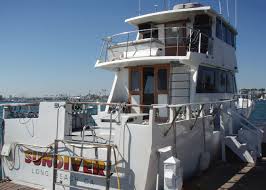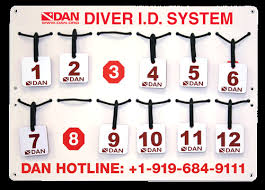 |
| Hey girl, wanna get wet? |
Snorkelling is for big girls and sissies. Real men; tough, grab-life-by-the-balls men go SCUBA diving. SCUBA, after all, has loads of equipment. Stuff like valves and regulators and cylinder thingies. You know, the real technical stuff that only tough, black-clad hero types can possibly understand. And of course, you need training; tough, stamina-stretching, mind-challenging training. The sort of training that needs to be delivered by tough, hard trainers who, in another life, would have been NASA pilots or special forces soldiers had they not had flat feet, weren’t scared of the dark and didn't have to take care of their dad's photocopying business. And, once you completed this training for heroes you get certified!
Anyone can snorkel, but only real tough guys are bona fide divers with a plastic laminated id cards to prove it. Right? The idea that being a certified recreational diver makes you some kind of underwater James Bond is, and always has been, complete nonsense. Yet, amongst some sports diving enthusiasts and lets face it, a lot of instructors, the belief still persists. We’ve all met the pub bore whose list of career experiences exceeds the years they’ve actually been alive and they are properly found in all recreational sports but for some reason they seem particularly drawn to the world of SCUBA diving. One reason for this, in our opinion, is the sheer number of “professional diving” courses you can take and subsequently all those lovely laminated cards you can collect. But is the world of badge collecting SCUBA tough guys under threat? For a few years now the world of recreational diving has been dramatically changing, so much so that SCUBA diving has become… well passé. You see nowadays, real adventurous men with their beautiful, adventurous and tough bikini-clad girlfriends now go freediving, which is diving without all the faff – no tanks, no tubes, no regulators, etc. etc.
Imagine how galling it must be for tough guy Brad, to flash his laminated boat diver card like an FBI agent at the sexy blonde sitting at the bar, only to have her raise a perfectly manicured eyebrow and whisper “oh darling, I only date men who can hold their breath for ten minutes" then wink suggestively. All that pool training, all that money spent on buoyancy control devices and plastic laminated cards that certify you as a shore diver, underwater photographer and advanced bubble blower and you can’t even use them to pick up girls anymore. Now before SCUBA fraternities around the world get all hot and bothered and threaten to whip us with their hoses think about it for a minute. Apart from getting an extra luggage allowance from the airline why would you need these ID’s if it’s not to impress girls at bars? Who has ever been stopped by the beach police and asked to prove they’re licenced to use the SCUBA tanks they’re putting on or that they’ve undergone a course of instruction on reading a dive computer? The answer is no one. Ever! More of this later, but let’s get back to those tough guy sports divers getting frustrated at having freedivers stomping all over their macho turf. How are they going to get laid now? Well, if you can’t beat them, join ‘em. The beautiful world of freediving could be yours Brad, you just need err…. some training.
That though is the problem. Who exactly do you go to to get that training? After all there aren’t that many expert freedivers in the world, mainly due to the fact that the majority of the worlds best freedivers tend to kill or maim themselves by… Well freediving.
But that problem seems to have been swept aside, because now, the same people who can teach to you to fall off a boat with style or waddle into the sea from shore or even take a professional underwater holiday snap can now teach you to freedive. Yep the SCUBA diving organisations of the world have spotted the changing trend in recreational diving that threatens to stop bubble blowers picking up girls at bars and are surfing to the rescue.
If there is a something you want to do underwater, the diving organisations probably have a course for it. Which brings us back to the these courses, the ID cards that come with them and the question of how?
 |
| Are you certified to do that? |
How can there be instructors out there who are qualified to teach SCUBA, photography, videography, cave diving, tech diving, underwater sculpture, deep-sea mountaineering and now freediving as well? All right we made two of those up. But we think you get the point.
Now, if any of you have heard of Malcolm Gladwell, you will know of his 10000-hour theory. Simply put, you need to have carried out 10000 hours of deliberate practice to become an expert. Assuming you did nothing else but practice for eight hours a day, every day, it would still take you almost three and half years to become an expert at something. Something like… Say.... Open water diving. And, assuming you want to be taught by an expert and not some nineteen year-old surfer dude on a gap year, that means the person who’s teaching you to dive from a boat should have many, many years of boat diving experience. If they also taught freediving, underwater photography, tech diving and cave diving as well then they would have spent around seventeen and half years practicing themselves and that’s before they have learnt to teach. All in all, if such an expert instructor existed, and they don’t, then they would have spent the best part of two decades of careful practice before they even met their first student. Possible from a time point of view maybe, but hardly from a financial one. After all, no one moves to Bali to become a diving instructor because they are a raging success in their own country.
Gladwell’s theory does, we agree, tend to fall down a bit since there is such a thing as skill transference and aggregation of experiential learning and it recent times it has come in for some heavy criticism. But it does point at a clear problem in the world of recreational diver training which is that most of it is utter garbage. In fact it is the training organisations themselves that seem to be fueling the Walter Mitty mentality that permeates the sport.
The problem is one of regulation. You cannot get a licence to drive a car without undergoing an independent test and nor can you fly a plane or even parachute out of it without undergoing an examination of your skill by an external assessor. And you can’t be a special forces soldier without undergoing rigorous assessment of your physical and mental capabilities. Yes you can buy the badge and pretend you are one but you’re not and never will be because it’s tough, very tough and the forces weed out those who are not up to standard. Wanting to just use the badge to pick up girls is unlikely to be enough motivation to get you through that sort of course.
In the world of sport diving no such standard exists. The same people who train you are the same people who certify you and in such a self-regulating world the idea that the person who takes your hard earned bucks to train you to dive is at the end of the course going to say “sorry mate, you're crap at this” and refuse to certify you is just ludicrous.
The training organisations are in it for the money and telling their students that the training they’ve just spent their money on has led to nothing is a quick way of going bust or getting sued. Of course if such a standard did exist, if each nation had a law that said an externally assessed sport diving certification was a legal requirement for diving in their jurisdiction then the same organisations would probably get sued to destruction anyway. Would this be a bad thing? We don’t thing so. In such a world, the number and types of course would fall dramatically, training would be globally recognised, organisations would be legally accountable and instructors would be externally assessed yearly to ensure that they really were experts and not just selling cards that you can use to pick up girls at bars.
This of course will never happen anytime soon since the training organisations would fight tooth and nail to stop their business model going belly up overnight. But maybe one day it will. But for now tough guy SCUBA divers will be able to train to dive without tanks and sexy blondes will still have laminated cards flashed in their faces and endure long lectures at the bar about breath hold techniques ad nauseam.
For the rest of us though, we will still know that most freedivers never underwent any formal training, never paid to get a laminated piece of card and never ever had anyone train them to fall off a boat. We will know that far from being for sissies, snorkelling is still the best route into recreational freediving and spearfishing and it always has been. Remember skin diving anyone? And, we will know that SCUBA diving is full of phony expensive courses, taught by trainers who aren’t experts, designed so that Walter Mitty types have a chance at getting laid.
And for those sexy girls in bars we offer this piece of advice. If you ever meet someone who shows you a freediving certification card, prepare for a long and boring evening of tough guy talk or make your excuses and go find some snorkellers. We don’t have cards that certify we can hold our breath but we do know what to do with a snorkel.
Here’s some links to diver ready. A pretty good YouTube channel where the host outlines some of the utter nonsense that infests the sport diving world.
https://www.youtube.com/watch?v=-0s-qPErecA
https://www.youtube.com/watch?v=LWTmwasCCUY
https://www.youtube.com/watch?v=vH43G4HE3VA
And here is one of our other posts about freediving courses.
https://snorkelclub.blogspot.com/2015/11/badges-we-dont-need-no-stinking-badges.html










